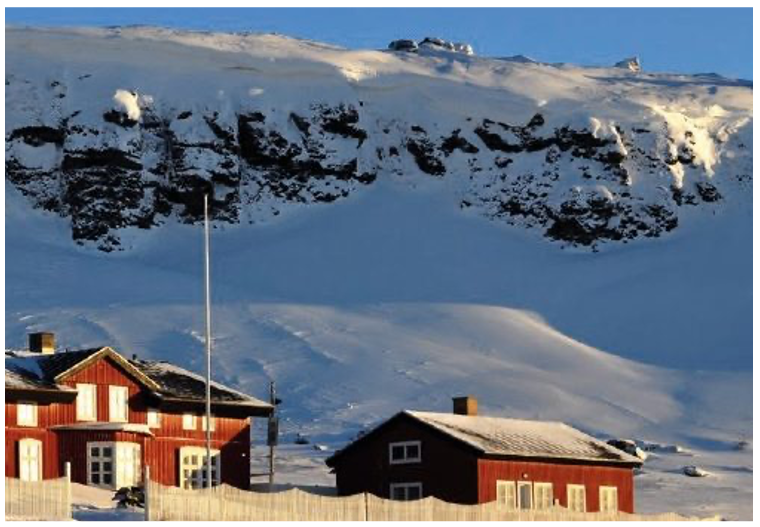Arctic Station, DK

Arctic Station, DK
Owner of the Arctic Station in Greenland is the Faculty of Science at the University of Copenhagen, Denmark.
The Arctic Station is located on Disko Island in Greenland, and is surrounded by both terrestrial and marine environments, which makes it ideal for botanists, zoologists, geologists, geophysicists, and physical geographers. A meteorological station was established in 1990, and a full record of climate data exists since 1991.
Contribution to POLARIN key research challenges: 1, 2, 3, 4, 5, 6, 7
Contact: Station manager, Professor Kirsten S. Christoffersen: kchristoffersen[at]bio.ku.dk
Website
https://arktiskstation.ku.dk/english/
https://www.interact-gis.org/Home/Station/72
Location
The Arctic Station is located on the south coast of the Disko Island in central West Greenland. It is facing the Disko Bay/Davis Strait and is characterised by a low arctic, coastal climate. Some of the world’s largest icebergs drift by the Arctic Station.
Facilities
The main building (660 m2) can accommodate 39 guests, there is a room with audio-visual equipment and a projector, a living room, canteen and kitchen facilities.
In addition to the main building, the station also consists of:
Laboratory and library building (225 m2; two floors)
Private home for the scientific coordinator (120 m2; + basement)
Workshop and garage (70 m2)
Storage hut in the harbor area (20 m2)
Storage (87,5 m²)
Three staff members work year-round at ARCST. One of the laboratories is equipped specifically for biologic studies.
Services offered
The station supports a comprehensive year-round monitoring programme covering basic climatology and local climate gradients, river run-off and sediment transport measurements, and coastal ice coverage. Most of these monitoring data is executed within Greenland Ecosystem Monitoring (https://g-e-m.dk) GEM (GeoBasis, GlacioBasis and ClimateBasis) and stored in the GEM database. Data is available on request via GEM.
Maps, 3D digital terrain models, satellite data and aerial photographs of the area are available on request. Limited lab facilities.
What is included in the Access
Unit of access: User/day
Modalities of access offered: In-person access
The access includes preparatory work, instruction, stay and overnight stay, energy supply, basic safety equipment for field work, and use of kitchen facilities. The typical duration of work is 7 days. The users will work independently on their projects but coordination of all projects at the station and reservation of e.g., lab time is done together with the station manager.
Availability for Access
See the table in the dedicated Transnational Access call page.
Time frame for access preparations
After POLARIN Transnational Access is granted, an additional application for study and research visits to the Arctic Station must be submitted through an online booking form at the website https://arktiskstation.ku.dk/english/stay/.
The deadline for applying for a stay during the period May-October is 1st December of the previous year. A decision can be expected around mid-January. In complicated cases, it may take longer time.
Later applications are possible but will have second priority with a handling time of 2-4 weeks.
It is highly recommend that researchers planning to visit Arctic Station read the document ”Important information” available at:
https://arktiskstation.ku.dk/ophold/Vigtig_information_inden_udfyldelse_af_bookingformen.pdf
The time frame to receive the documentation and make logistic arrangements after access is granted is as early as possible, but the latest one month before the actual arrival at Arctic Station.
Permits, licenses and training
Permits: The need for permits depends on which type of studies the users are doing. The requirements are specified in the contract between the user and Arctic Station. There are e.g. specific permits for sampling biological and geological material that must be obtained through the Government of Greenland.
Certification or training required from RI users: First aid and some medical training relevant for Arctic environments is always recommended. In case rifle handling is required, the users must provide the relevant official certificates on rifle handling and shooting performance.
Medical guidelines
It is expected that all users follow the guidelines and requirements of their home institution.